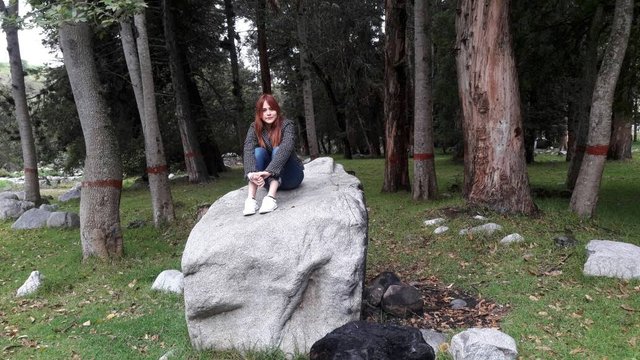Why are we so afraid of being alone?
Many people have no problem in being alone, there are those who enjoy and take advantage of the time they have to indulge themselves and advance pending. However, for others the fact of not being in company causes an intolerable feeling. Even though this feeling is human, fear or fear can be harmful. The fear of loneliness is related to the anguish of abandonment and the feeling of danger without anyone intervening. Fear often finds its origin in a trauma from the past. So ask yourself what happened in the past so you are afraid to be alone?

What is loneliness?
Feeling that we are alone is one of the worst feelings we can have. The feeling of loneliness is one of the great enemies of happiness. And, to be happy we need to create intimate links with other people. We need to have someone to trust, we need to have a sense of belonging and have people to support us. Having strong relationships (which does not mean many relationships) is one of the keys to happiness.
There are two different types of loneliness:
The first one refers to the feeling of anguish due to the absence of real or perceived social contact.
The second term describes the taste and the need to get away from others from time to time.
.jpg)
And being alone can be good. The problem is when we feel alone, when we perceive a lack of social support. The danger is isolation
Loneliness can be described as a debilitating psychological condition due to the actual or perceived absence of satisfactory social relationships. People with loneliness show deep feelings of emptiness, worthlessness and other depressive symptoms.
.jpg)
Within this negative loneliness we can differentiate several types of loneliness.
Emotional loneliness
Emotional loneliness appears as a result of the loss of a bond with another person. It may be due to the death of this or to the rupture of a relationship.
Social loneliness
Social loneliness refers to the absence of a network of social relationships that you feel belongs to.
Subjective and objective solitude
Subjective solitude refers to the fact that, in spite of being accompanied, we feel alone, as it can happen within couple relationships.
Loneliness in a relationship is an indicator that the relationship is not going well. In these cases we must consider the causes of these feelings, improve communication in the couple and learn what we need from each other.
Objective solitude refers to the fact that any external observer can appreciate that a person is really alone and isolated.
Situational loneliness
This type of solitude refers to the fact that after a period of time of psychological distress, people manage to face the loss and recover. It's a kind of passing loneliness.
Chronic loneliness
It is more stable, and is usually the result of people's difficulties in establishing satisfactory social relationships over the years.
So, we could talk about that solitude is sometimes necessary. It emerges as a warning that something is not going well and that it is necessary to connect with people again. However, if it is not managed properly, we may get stuck in that feeling and not get out of there, making it more difficult to solve that problem.
.jpg)
People are usually very busy between work, studies and home. You sure do not have time to go to the gym for a month. Exercising will allow you to free your mind, while your body shows the results. It is also a good way to kill time. Another technique that can help you and not be around without knowing what to do list and organize. You can start by asking yourself and write what would make you happy, making a list of the projects you want to achieve. In this way you will be able to make more accurate decisions while being lucid and thoughtful. Practice enjoying a simple activity, such as looking at a landscape, listening to a song, reading. Concentrate on simple things, and try to practice at least 15 minutes a day a time of solitude doing some activity. These habits will help you connect with your emotions and eliminate stress
.jpg)
The more you know and accept yourself, the better your interpersonal relationships will be.
.jpg)